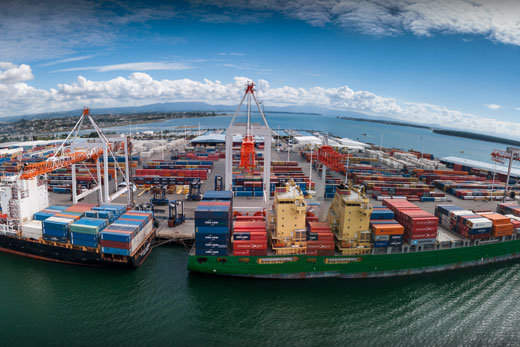Maritime NZ is proposing a compromise and public meetings over a seafaring certification wrangle caused by conflicting systems.
There are currently a large number of different certificates held by seafarers, mostly issued under different regulations before 2000 when New Zealand endorsed the International Convention on Standards of Training, Certification and Watch-keeping for Seafarers (or STCW) which entered into force internationally in 1984.
Seafarers certificates are changing.
The STCW Convention establishes basic requirements on training, certification and watch-keeping for seafarers on an international level.
Previously the standards of training, certification and watch-keeping of officers and ratings were established by individual governments, usually without reference to practices in other countries.
As a result, standards and procedures varied widely, even though shipping is international by nature.
Seafarers' certificates issued before 2000 do not have expiry dates. Under current rules holders of pre-2000 certificates must move to a new SeaCert certificate, which will involve a cost and will have to be renewed every five years – at another cost.
Seafarers are reluctant to take up the options of moving to an internationally recognised STCW certificate by December 31, 2016 - or 31 March 2019 to continue to hold a domestic certificate or move to an STCW-F certificate.
Few have moved to the new certificates, saying the costs and the time involved in making the transition are reasons.
Maritime NZ is now proposing rule changes so many older certificates can be ring-fenced – meaning seafarers could continue using the older tickets.
The proposal is seafarers can either register, free of charge, by May 31, 2017, if they want to ring-fence their certificates, otherwise their tickets will expire.
Maritime NZ is proposing that seafarers who hold certain legacy certificates can choose to have their certificate ring-fenced. This means they won't have to transition into SeaCert, and they will not have to undertake any new or extra training, and they can continue to work on vessels.
Ring-fencing is not available to all certificates. A new tool on the Maritime NZ website allows seafarers to get specific advice on each certificate. Consultation material is also available online.
The consultation will run until 7 June, with a series of public meetings planned around the country from mid-May.
The Tauranga/Bay of Plenty meeting is on Tuesday May 31, at the Tauranga Yacht & Power Boat Club, 90 Keith Allen Drive, Tauranga.
There are three legacy certificates that cannot be ring-fenced, because they allow seafarers to work in waters where STCW requirements apply. These are: NZ Coastal Master, NZ Offshore Master, NZ Offshore Watch-keeper.
These certificates still have to transition under the SeaCert rule to an STCW, STCW-F certificate or both. Maritime NZ is proposing to extend the deadline for transition of these tickets beyond 31 December 2016 to a phased transition period of 1 June 2017 to 30 June 2018.
Other north island meetings are Wellington; Monday May 16, Maritime NZ, 11th Floor, 1 Grey St, Wellington.
Auckland; Thursday May 26, Marine Pollution Response Service (MPRS) – 755 Te Atatu Road, Te Atatu, Waitakere.
Whangarei; Monday May 30, Forum North, 7 Rust Avenue, Whangarei.



1 comment
Thanks National
Posted on 09-05-2016 08:09 | By Captain Sensible
Foreign-going NZ seafarers are being replaced by cheaper nationalities. Under National many years ago, foreign companies became exempt from tax in NZ, exempt from ACC levies in NZ and able to pay substandard wages despite working the NZ coast. Most NZ shipping companies folded overnight. Now the government are pretending to care about NZ seafarers. It is a real pity we can not vote for cheaper Asian politicians than the protected species we have in parliament now.
Leave a Comment
You must be logged in to make a comment.